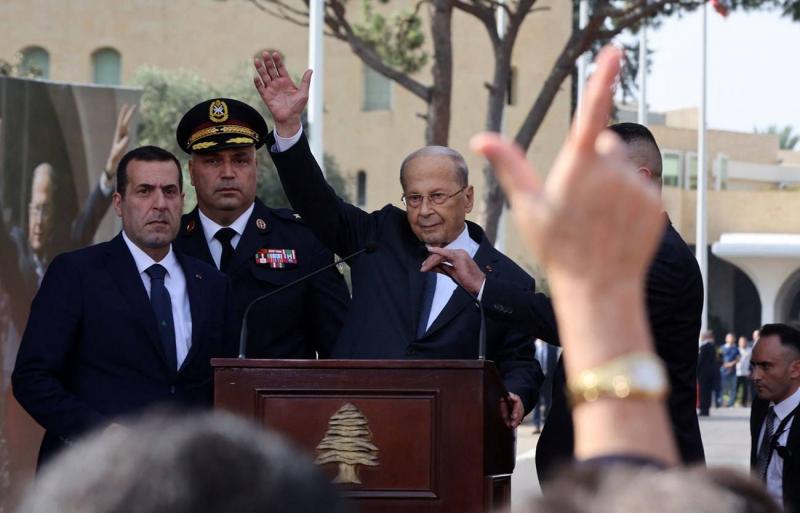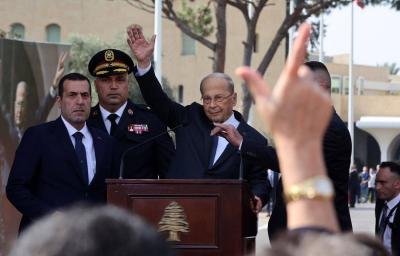In an attempt to explain the state of vacuum that Lebanon is experiencing, marked by the absence of a president, it is useful to recall the journey of new agonies, through its various stages, that the country has endured for over 19 years. This new journey of suffering, which cannot be said to be the last, began with the decision made regarding Lebanon that was executed on February 14, 2005... a decision to execute the country and its capital. Since February 14, 2005, there have been many events all pointing in the same direction—creating a vacuum at every level, not just regarding the presidency, which it symbolizes.
The day of August 4, 2020, when the Beirut port explosion occurred, served as confirmation of the success in entrenching the vacuum amid the abandonment of Lebanon and internal fragmentation. What former President Emile Lahoud failed to accomplish in 2005 was achieved by those who became president between 2016 and 2022. On the day of the Beirut port disaster on August 4, 2020, Michel Aoun succeeded where Emile Lahoud failed, who, at the time, regarded the assassination of Rafik Hariri and his companions as mere "abasement," calling for the pit left by the explosion to be covered "so that people can return to their work."
Emile Lahoud failed to prevent an international investigation into the assassination of Rafik Hariri and failed to stop the United Nations Security Council from issuing a resolution to establish a special international court for Lebanon. Despite the costs associated with that court, details of the assassination of Rafik Hariri and his companions were revealed. This would not have been possible had the matter been left to the Lebanese judiciary, which is subject to the reality of the presence of illegal weapons and a militia that considers itself above the law. It is not a coincidence that Michel Aoun began his term by placing the judicial formations in a drawer.
Michel Aoun, early on, presented his credentials to those who subjected him to a series of tests and examinations for ten years before a positive outcome for him was achieved. From the perspective of Hezbollah and Iran—who once hosted Michel Aoun—the man became qualified to be in the Baabda Palace, from where he stated that Lebanon "is heading to hell." Michel Aoun's immediate response to the Beirut port explosion confirmed that the vacuum is a goal in itself. The person in the position of president hastened to obstruct any investigation into the port disaster.
The emergence of the vacuum became clear when Michel Aoun cited the slow pace of the international investigation as an excuse to prevent the truth—which remains elusive—from being uncovered. There is no interest in uncovering who stored ammonium nitrate in one of the port’s hangars for all those years. The Lebanese investigation wandered into futile directions to avoid knowing the truth about the use and function of the port during the years when large quantities of ammonium nitrate were present there. Moreover, there remains the question of who was responsible for removing the ammonium nitrate from the port and where those quantities were going.
Four years after the port explosion disaster, there are no indications that the truth will be known one day. All that seems to be on the table is the deepening of the vacuum at all levels and making it an established fact, aiming to entrench the transformation of the country from a land of light to a land of darkness. The vacuum has become a substitute for the truth in Lebanon. More than ever, there seems to be a desire to waste any opportunity to uncover the truth by getting lost in labyrinths of no benefit. These are labyrinths like the demand for investigations into former officials, such as this minister or that, to avoid uncovering the truth and the circumstances surrounding the port explosion, including Michel Aoun's acknowledgment that he was aware of the presence of ammonium nitrate there beforehand.
The entrenchment of the vacuum in Lebanon, a vacuum not born yesterday, explains the new role of the country in the regional equation ever since Beirut became a second capital for the Houthis and since Hezbollah became a direct party in the war waged by the regime in Syria against its people... and since the party decided to open a front in southern Lebanon, reaffirming that the "Islamic Republic" in Iran possesses the decision of war and peace in the country, even the decision to expand the Gaza war or not. This is just a glimpse of the many examples that can be cited about Lebanon's new function in the post-Rafik Hariri assassination phase, following the withdrawal of the Syrian army and the "Islamic Republic" filling the resulting military and security vacuum through various means, starting with instigating the summer war of 2006.
Nothing happens by chance in Lebanon. The vacuum grows, with its many milestones, especially during Michel Aoun's term and the rejection of an international investigation into the Beirut port explosion, on a daily basis. The vacuum expands according to a studied plan, the most perilous aspect surrounding it is the Arab and international abandonment of the country, leaving it as a "theater" for Iran and no one else but Iran. The "Islamic Republic" understood early on how to evade any international investigation at the moment when the port disaster occurred, which is nothing short of the execution of the sentence issued in 2005 regarding the implementation of the execution rule in Beirut and Lebanon!




